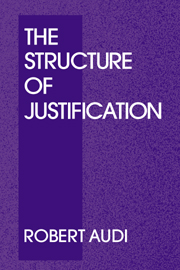The Problem of Punishment
In this book, David Boonin examines the problem of punishment, and particularly the problem of explaining why it is morally permissible for the state to treat those who break the law in ways that would be wrong to treat those who do not? Boonin argues that there is no satisfactory solution to this problem and that the practice of legal punishment should therefore be abolished. Providing a detailed account of the nature of punishment and the problems that it generates, he offers a comprehensive and critical survey of the various solutions that have been offered to the problem and concludes by considering victim restitution as an alternative to punishment. Written in a clear and accessible style, The Problem of Punishment will be of interest to anyone looking for a critical introduction to the subject as well as to those already familiar with it.
- Most comprehensive critical survey of the current literature on justifying punishment
- One of the few book-length arguments against punishment by a philosopher
- Features a forceful defence of compulsory victim restitution as an alternative to punishment
Reviews & endorsements
"... an excellent, thorough account of the concept of punishment. He critically engages in great depth a wide range of theories that purport to explain why the practice of punishment is morally permissible ... In addition, Boonin provocatively calls into question the ultimate need for punishment by insightfully defending an alternative practice of pure restitution from numerous objections. Whether or not one agrees with his defense of abolitionism, Boonin convincingly shows that a plausible solution to the problem of punishment will look very different from any theory that has come before in the literature." - Jim Staihar, University of Chicago Law School
Product details
April 2008Adobe eBook Reader
9780511380518
0 pages
0kg
This ISBN is for an eBook version which is distributed on our behalf by a third party.
Table of Contents
- 1. The problem of punishment
- 2. The consequentialist solution
- 3. The retributivist solution
- 4. Other solutions
- 5. The appeal to necessity.












